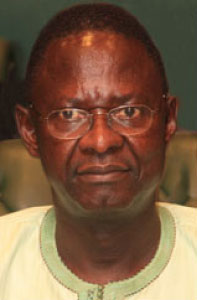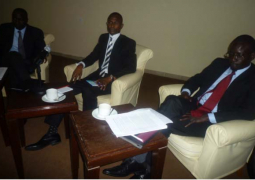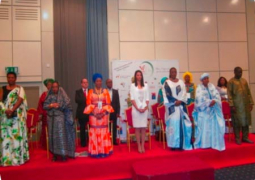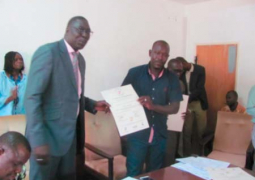
The main objective of the forum was to provide a platform for policymakers, researchers, national and international development partners, and civil society to exchange knowledge, experiences, views and ideas on the social protection systems in The Gambia and worldwide.
The forum also aimed at exploring future directions for designing and implementing inclusive and integrated social protection systems in The Gambia.
Speaking at the opening ceremony held at the Laico Atlantic Hotel in Banjul, Kebba S. Touray Minister ofTrade, Industry, Regional Integration and Employment, said statistics of The Gambia indicate that poverty headcounts reduced from 58% to 48% of the country’s population over the past decade.
This represents more than 815,000 people, he said, adding that this high figure is partly due to the inter-generational transfer of poverty and the livelihood shocks that people suffered over prolonged periods of time.
He added that the majority of these are women in female-headed households, widows, orphans, destitute children, internally displaced people, the unemployed youths, persons with disabilities and the elderly.
To tackle this problem, he said, the Gambia government has been implementing the poverty reduction strategies, and is now realizing the Programme for Accelerated Growth and Employment (PAGE) with a long-term objective of reducing poverty by 15% by 2015, and improving the well-being of its population through pro-poor growth and generation of significant employment.
According to him, the government has also formulated a national employment policy and strategies for 2010 to 2014, whose main goal is the promotion of rapid growth of the productive employment sectors, adding that it expects to achieve more on employment as well as inclusive and equitable economic growth.
These are challenges faced by many countries on the continent including The Gambia, he said.
The Gambia needs to reformulate its social protection vision and strategies, and will also need considerable assistance from donors to build the foundations for its economic rebound. The trade ministry added that the country also needs support when providing social protection measures, to build resilience to the recession and other shocks, and tackle the real economy.
Minister Touray said the country will need a lot to overcome the constraints and impediments faced by his ministry, the Ministry of Health, Social Security and Housing Finance Corporation (SSHFC) and other partners in the country’s leadership and coordination role.
Unicef Country Representative Aissatou Diawara said in her remarks on the occasion that the forum was also timely for the UN system, as well as for the Gambia government, as the new development assistance framework for the UNDAF and the PAGE kick-starts implementation.
The forum was the first of its kind in The Gambia, she said, adding that they were proud to be associated with the historic event.
Ms Diawara noted that social protection, in her view, was the reason human beings organize in groups, and should remain the motivation for sustaining such organisations.
The Unicef country representative stated that through a social protection programme they are able to mitigate the risks faced individually and as communities, to support the vulnerable, and provide families with the resources to secure basic needs during emergencies and times of economic adjustment.




